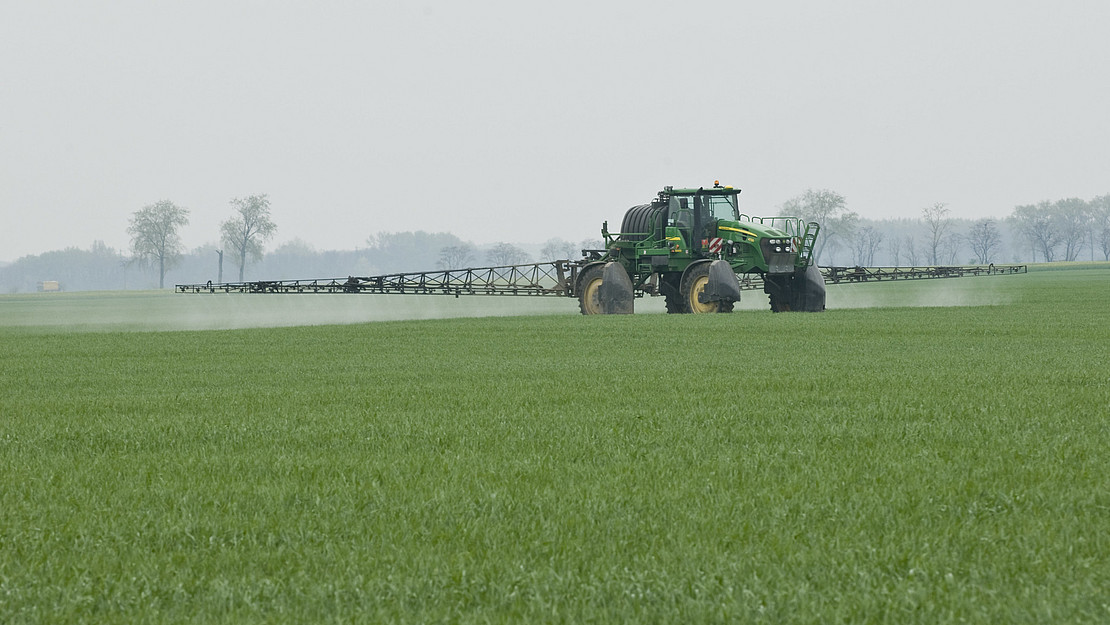This page contains automatically translated content.
Policy Brief: Germany contributes to water scarcity through water pollution
 Image: flickr/GLOBAL2000
Image: flickr/GLOBAL2000One of the reasons for this is the recent extension of the approval of glyphosate by the EU Commission, as the herbicide can now also be detected in groundwater worldwide. According to the researchers, little attention has so far been paid in connection with German supply chains to the extent to which the input of fertilizers and pesticides affects the availability of clean water.
In order to reduce the water quality footprint associated with the German bioeconomy, decision-makers in politics and society "need to be sensitized to the hotspots of water pollution in the German agricultural supply chain", the policy brief states. A monitoring program could help to mitigate the biggest hotspots.
To this end, the Research Group makes several recommendations for action to political decision-makers. Among them:
- The scarcity of clean water should be monitored and taken into account in decision-making processes.
- Promoting the bioeconomy should neither fuel the emergence nor the increase in regional scarcity of clean water worldwide.
- Monitoring is necessary in order to investigate and monitor the situation in hotspot areas and to avoid inadvertently exacerbating water stress in other regions.
- Standards for action should be developed in order to be able to decide to what extent agricultural products should be imported from water-stressed regions that are produced with irrigation and/or associated with pollutant inputs.
The full policy brief "Why pollution also means scarcity" can be found here: https: //symobio.de/wp-content/uploads/2024/03/PolicyBrief_Wasser.pdf
Background to the research project
The policy brief was written as part of the SYMOBIO research project of the Center for Environmental Systems Research (CESR) at the Kassel Institute for Sustainability at the University of Kassel. SYMOBIO is developing the scientific basis for systemic monitoring and modeling of the bioeconomy in Germany. The project is funded by the Federal Ministry of Education and Research and coordinated by CESR at the University of Kassel.
More information at: https://www.uni-kassel.de/forschung/cesr/forschungsprojekte/symobio-20 orwww.monitoring-biooekonomie.de
Contact:
Anna Schomberg
Research assistant at CESR
Phone +49 176 438 468 31
E-mail: anna.schomberg[at]uni-kassel[dot]de
Prof. Dr. Stefan Bringezu
Spokesperson of the CESR
Phone: +49 561 804-6115
E-mail: bringezu[at]cesr[dot]de
Dr.-Ing. Meghan Beck-O'Brien
Research associate at CESR,
Project manager SYMOBIO
E-mail: meghan.beck-obrien[at]uni-kassel[dot]de